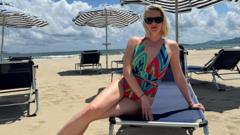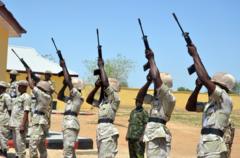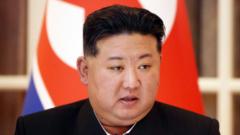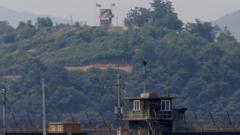Anastasia Samsonova shares her experience at North Korea's Wonsan Kalma resort, highlighting strict controls and a surreal atmosphere.
**Exploring North Korea's Controversial Holiday Resort: A Russian Perspective**

**Exploring North Korea's Controversial Holiday Resort: A Russian Perspective**
A firsthand account of a tightly-controlled beach vacation at Wonsan Kalma, North Korea's newest resort.
Wonsan Kalma, North Korea's newly opened coastal tourist zone, has attracted a limited influx of tourists, primarily from Russia. Among the first visitors was 33-year-old Anastasia Samsonova, whose controlled experience unveiled both the allure and the restrictions of this unique destination. Opening on July 1, 2023, the resort was touted as a significantly part of Kim Jong Un's initiative to boost tourism, modeled in some ways after Spain's Benidorm.
Accompanied by guards, all tourists must follow strict itineraries, restricting interactions with locals. Anastasia recounted her trip, noting that the presence of security was meant to avoid startling North Koreans, who were surprised to see visitors due to the country's long isolation. While she appreciated the pristine beaches and immaculate facilities, she also faced strict limitations on photography and attire.
The resort, located near a missile testing site, is marketed to Russians by accredited travel agencies, although it has faced criticism from human rights groups concerning the treatment of its construction workers. Travel from Russia to North Korea carries a hefty price tag of $1,800 for a week, including three days at the resort, which contrasts sharply with the average monthly salary in Russia.
Amidst her carefully curated experiences, Anastasia and fellow tourists enjoyed relatively affordable food and a serene environment, with sparse crowds. However, the future of tourism at this site remains uncertain; additional trips for Russians are contingent on governmental approvals, amidst broader challenges faced by potential tourists from neighboring China.
Despite operational challenges, the North Korean government still limits tourist numbers to prevent discontent among locals. Observers note the regime's strategy is to prevent comparisons that could undermine its authority. Amid the mixed reviews of Wonsan Kalma, the prospect of a return visit lingers for Anastasia, who expressed interest in exploring more of North Korea’s offerings, including nearby ski resorts.
Accompanied by guards, all tourists must follow strict itineraries, restricting interactions with locals. Anastasia recounted her trip, noting that the presence of security was meant to avoid startling North Koreans, who were surprised to see visitors due to the country's long isolation. While she appreciated the pristine beaches and immaculate facilities, she also faced strict limitations on photography and attire.
The resort, located near a missile testing site, is marketed to Russians by accredited travel agencies, although it has faced criticism from human rights groups concerning the treatment of its construction workers. Travel from Russia to North Korea carries a hefty price tag of $1,800 for a week, including three days at the resort, which contrasts sharply with the average monthly salary in Russia.
Amidst her carefully curated experiences, Anastasia and fellow tourists enjoyed relatively affordable food and a serene environment, with sparse crowds. However, the future of tourism at this site remains uncertain; additional trips for Russians are contingent on governmental approvals, amidst broader challenges faced by potential tourists from neighboring China.
Despite operational challenges, the North Korean government still limits tourist numbers to prevent discontent among locals. Observers note the regime's strategy is to prevent comparisons that could undermine its authority. Amid the mixed reviews of Wonsan Kalma, the prospect of a return visit lingers for Anastasia, who expressed interest in exploring more of North Korea’s offerings, including nearby ski resorts.
















